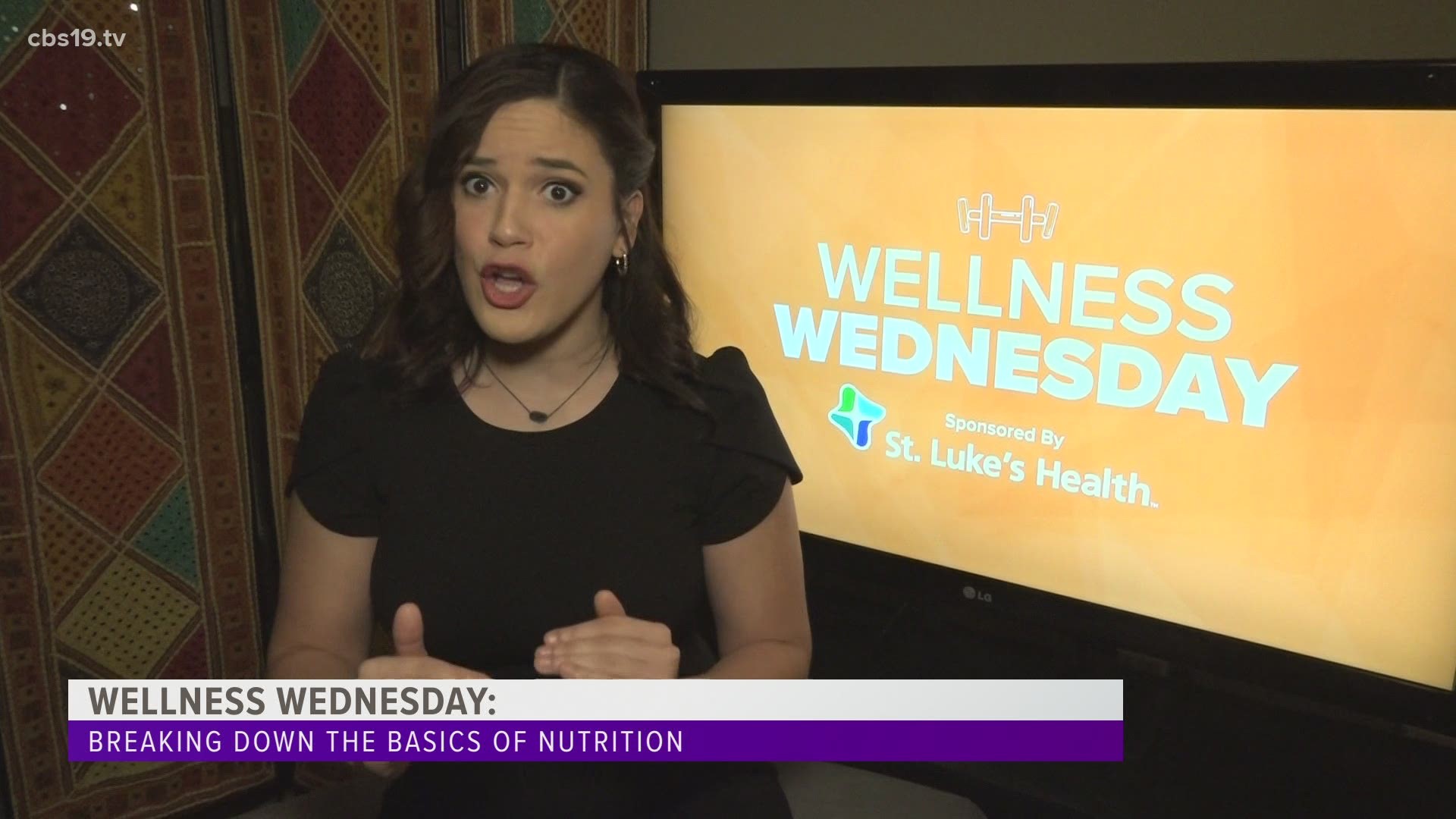TYLER, Texas — Proteins, carbohydrates, and fats are known as the main three macronutrients our body needs for it to function well.
How much of it do we need and how does that fit into our daily lives? The answer is more complex than you think.
"Everybody has different needs," Marie Pizzolatto, Registered Dietitian Nutritionist at CHRISTUS Mother Frances, said.
To find out what specific needs each body has, Pizzolatto says she starts with measuring the body mass index of the patient. It's a tool that measures overall body fat percentages using height and weight.
"Mainly the BMI is a starting point for us and then we go from there to assess what their muscle mass is like, their activity level because then those factor into the needs for their energy," she said.
The BMI helps determine where the body is at and where you can go from there. It doesn't tell where body fat is stored or distinguish fat from muscle, but it gives doctors the ability to predict heart disease risk, cholesterol, and blood pressure.
Measuring your own Body Mass Index is simple. Using an online calculator, input your height and weight and it will give you a number to work with.
But what do those numbers mean?
If you are below 18.5 it means you are underweight. You can gain weight by focusing on adding healthy calories to your diet. Try adding high protein meals and snacks to your diet. Choose nutrient-heavy carbohydrates like brown rice and whole grains to get as much nourishment as possible.
If you are 25-29 on the BMI scale you are considered overweight and anything over 29 is considered obese, a simple start to weight loss is looking at labels of what you are already eating.
"Our typical diets tend to go outside that and include extra added sodium, added sugars, and too much-saturated fat, and so those are the things that end up sabotaging our health, so what we want to do is look at healthy ways of approaching that," Pizzolatto said.
You can cut back excess sugar, salt, and saturated fat by cutting back on sodas, fruit juices, and fried foods. Instead, focus on drinking more water, eating lean proteins like chicken and fish, and increasing your vegetable intake.
"Weight balance is based on calories, are we taking in more or fewer calories than we use. An activity like exercise also affects that usage, if we are exercising we are raising our calorie needs," she said.
Tracking what you eat can be essential for both weight loss and weight gain. There are many free phone apps to help you figure out how many calories you need for weight gain or loss and they even go as far as tracking your daily sugar, sodium, and saturated fat intake to ensure you are staying below or at the daily recommended amount.

